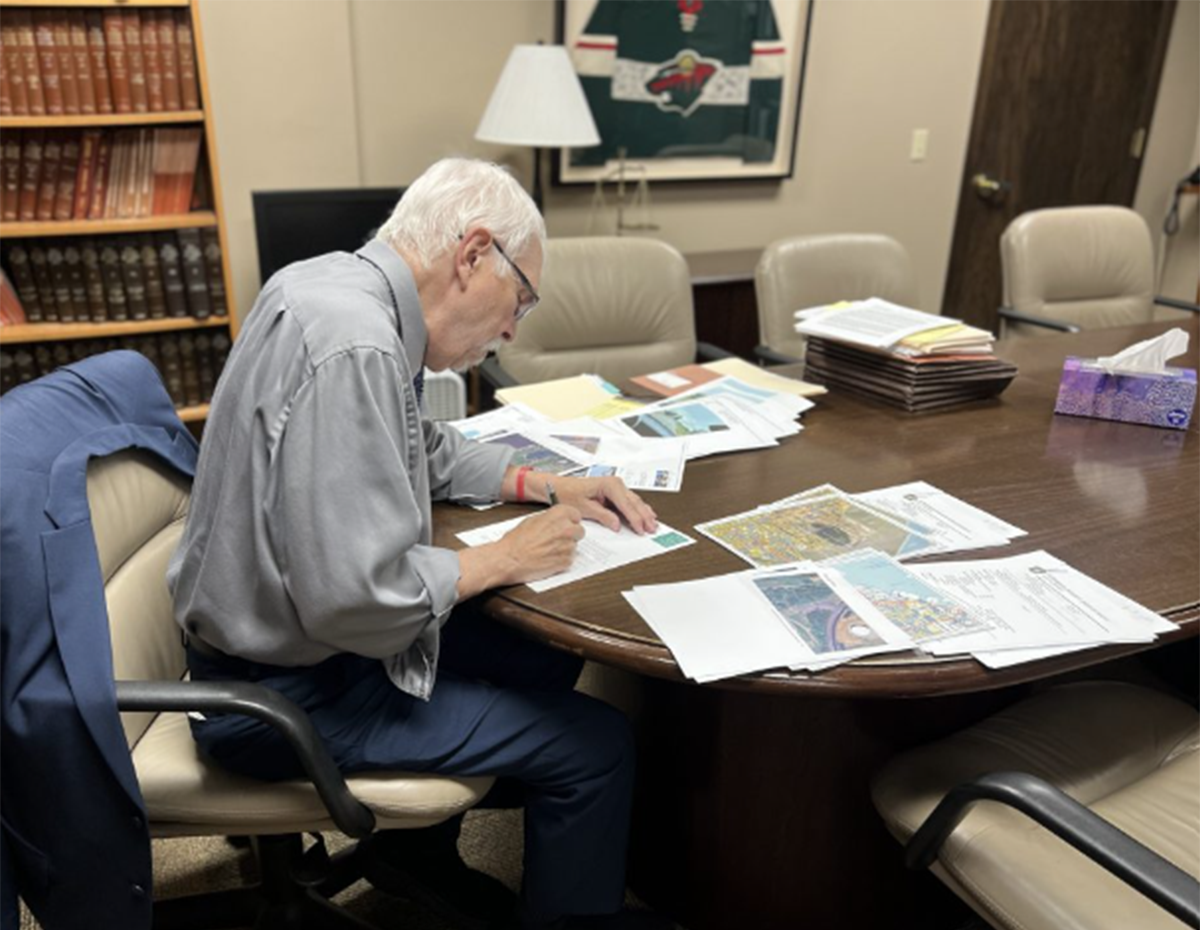“Stop. Wait a second.”
In her speech, “Reconstructing or Deconstructing Iraq,” Rania Masri invited audience members to stop and critically look at post-war Iraq.
Masri asked the audience of about 100 people, who gathered Tuesday evening in the Tamarack Room of Davies Center, to consider many aspects of the current situation.
Students need to be involved in the discussion on Iraq, Masri said.
| “You can’t bomb and at the same time keep the peace.” –Rania Masri |
“There is this idea that you need to be an academic expert on a subject to be qualified to speak on it, and I think that’s crap,” she said in an interview before her speech.
Masri said she is not an academic expert in political affairs; her degree is in environmental science.
However, she believes she is qualified to speak on the topic, because she has researched the situation and has academic sources to back up the ideas she has developed. She also works with political events and ideas in her position as the director of the Southern Peace Research and Education Center at the Institute for Southern Studies in Durham, N.C.
Masri asked students and community members to consider what war looks like.
“Realize we’re talking about people, we’re talking about bombs,” she said. “If people can imagine, when bombs fall they literally shred peoples’ bodies. If they’re lucky, they die.”
Masri also discussed the number of innocent lives that are lost in war.
“I would love people to look at war the way we look at the justice system,” she said. “How comfortable would we feel with the execution with an innocent man or an innocent woman?”
As an Arab-American originally from Lebanon, Masri said she has a unique perspective on this war, because she has lived through conflicts similar to today’s situation in Iraq.
“I am coming from a war zone, and the recognition of how war tears lives apart,” she said.
Masri discussed who might be benefiting from the war in Iraq.
She also pointed out what she saw as irresponsibility of the companies that have been hired to rebuild Iraq.
“There needs to be reconstruction in the true sense,” she said. ” ‘I destroy a school, I rebuild a school,’ not ‘I destroy a school, and I rebuild a military barrack.’ ”
Masri said she would like to see the United States get out of Iraq immediately.
“You can’t bomb and at the same time keep the peace,” she said.
She encouraged the audience to become more politically involved by following events in Iraq and the United States, such as next year’s presidential election.
“It is our responsibility living in a democratic government to involve ourselves in our political system, regardless of our academic training.”
Freshman Ryan Andrews was pleased to hear Masri’s political discussion.
“It’s great,” he said, “because this is one of few outlets that I’ve seen at all since I’ve been here that has any political substance at all.”
Theresa Kemp, associate professor of English and a member of Eau Claire Staff and Faculty for Peace and Justice (SFPJ) said the idea for bringing a speaker like Masri came from last spring’s war teach-in.
“We saw from that event that we need a follow up, because we still need more information (on Iraq),” she said.
Kemp said SFPJ chose Masri after listening to audio streams of her speeches online.
Freshman Christina Locke said she was encouraged by Masri’s speech.
“It’s really great that Eau Claire invites people like this here,” she said. “More people would probably care about this if they have the opportunity to hear people like (Masri) speak.”






